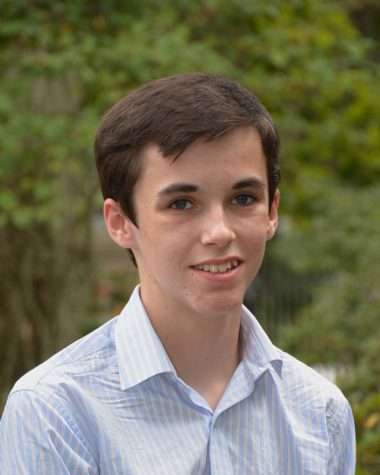
This fall, academic accommodations underwent changes to better formalize and clarify the process of those who qualify for extended time, including when and how to finish exams or other work outside of classroom test-taking time.
Additionally, late last year, the School also began honoring requests for 100 percent extended time, which academic institutions must comply with under the Americans with Disabilities Act (ADA), which passed into law in 1990, but was updated in 2008 under former President George W. Bush.
Under the new guidelines, even privately-owned organizations, including private schools, must be accessible to individuals with disabilities and accommodations need to be offered when reasonable.
“Under the ADA, an individual with a disability is a person who has a physical or mental impairment that substantially limits a major life activity (such as seeing, hearing, learning, reading, concentrating, or thinking) or a major bodily function (such as the neurological, endocrine, or digestive system),” a 2017 press release by the Department of Justice reads.
According to the School’s newly clarified policy, students must communicate with teachers that they have access to extended time no later than one school day before the original assessment date, and they must schedule when to finish the work during a study hall or free period.
Earlier this fall, Director of Academic Services and Supervisor of the Tutoring Program Danielle Bartone sent an email to teachers, also clarifying what they should do when affected students elect to utilize academic accommodations.
- Give student the unfinished assessment in an envelope/ folder to be brought to and completed in the Learning Commons (if the student has a free period immediately following the assessment period) or the teacher may drop the assessment off in the Learning Commons if the assessment is scheduled to be completed at a later date.
- Student checks in with the library staff upon arrival and library staff collects the envelope containing the completed assessment to be stored for pick up in the Learning Commons by the teacher. Assessments may not leave the Learning Commons.
- The student must write and sign the Honor Pledge on the top of their assessment.
Students who finish work in the Learning Commons are overseen by teachers who “passively supervise assessment completion,” according to Bartone.
Bartone, a member of the Student Support Team (SST), comprised of faculty and administrators to assist students facing a spectrum of challenging circumstances, said that even before this year, all stakeholders received communications and information about accommodations, but that now, with one written document, “parents, students, teachers, and advisers see a more formalized procedure to follow.”
Teachers, who have a private list of students with accommodations, are expected to initiate conversations with underclassmen about how and when tests will be completed. Upperclassmen, though, must initiate the accommodation process independently, according to the written guidelines.
“We want students to move towards more independence and build self-advocacy skills so they are prepared to advocate for themselves in college,” Upper School Head Joshua Neudel said.
With clarified accommodation policies and additional extended time offered for those who qualify, Neudel also said, “I don’t think much has changed in practice; we tried to create a scaffolded approach for students and teachers to understand everyone’s responsibility in the process. We are not only trying to clear up confusion for the teachers, but also helping students figure out what they are supposed to do.”























































